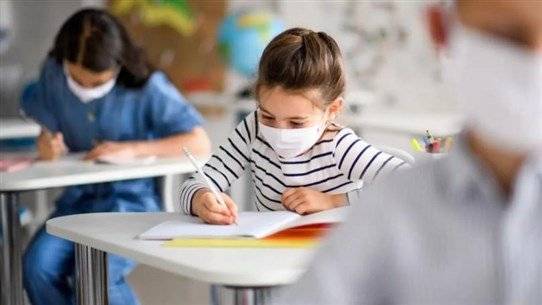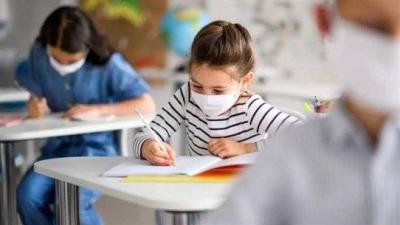The discussion in the educational sector in Lebanon is no longer about raising the value of school and university fees, as parents have resigned themselves to the reality. The conversation has shifted to the cash dollar amounts that some private schools are requesting from parents, under the guise of "assisting the school," given the inability to collect foreign currency in the private school budgets recorded annually with the Ministry of Education and Higher Education. Thus, private schools have followed the lead of private universities and resorted to imposing a flat fee in US dollars, which varies from one school associated with a mission or a foreign secular delegation to another. For instance, the Lycée Français Libanais Grand in Ashrafieh, Beirut, set the fee at 1200 US dollars for the first child in the family, while its branch in Maïtre Ibrahim set it at 1000 dollars. The amounts requested in US dollars range between 300 and 4000 dollars, depending on the school. This has coincided with an increase in the annual fee in Lebanese pounds by up to 300%.
Most parents do not object to this reality they cannot change, but many express difficulty in paying in foreign currency, as the majority have seen their salaries lose much of their value. Amid the need to maintain quality in education and not to compromise the educational staff that Lebanon is known for, parent committees (albeit nominally) did not object to the increases in fees in the national currency. A senior official from the Lebanese state spoke to "An-Nabaa" about contacting the Secretary General of Catholic schools, "protesting against the fee of 300 dollars for each of my two children, stating: 'This amount exceeds my monthly salary. Just my total annual salary barely covers the school fee in Lebanese currency after its increase...'. The response was that payment is not mandatory, but this does not resonate with the administration of the concerned school or others."
The stories differ, yet the cries of pain are the same, ending with parents voluntarily opting to pay, while those who cannot do so resort to changing from private to public schools. It is worth noting that some large schools have created support funds to help struggling families through able parents. The education problem in Lebanon is almost synonymous with daily life, which is becoming increasingly difficult in the country, tied to the energy sector concerning electricity and fuel prices. This problem is worsening due to the financial collapse afflicting the country and the deadlock in finding solutions for employees and workers, as any wage improvement in the public and private sectors will not lead to easing the livelihood crisis for families.
Some are drowning in choosing between priorities regarding their children's education or securing their living needs. Amidst these narratives, there is a portrayal of the crisis and an attempt to navigate this phase with minimal damage. Linda, an employee and mother of three children attending secondary and intermediate education, thanked the management of her children's school for "initiating a book exchange market among students at near-free prices, and for the school administration's decision not to include new imported books". Likewise, several mission and foreign delegation schools in Lebanon have taken the same approach, reducing costs that burden parents as the academic year begins, particularly regarding books and stationery.
A significant portion of parents, including employees and military personnel, has called for an increase in the educational allowances allocated for their children, "considering the unprecedented levels of fees," according to the wife of an officer in a security institution, who mentioned that the educational grant, which used to cover 80% of the annual school fee in an expensive school, has dropped to less than 7%. Amid calls for raising social security benefits to ensure the return of healthcare for insured individuals, and demands for significant wage improvements, the head of the General Labor Union, Bishara Asmar, is optimistic about "assistance that could help workers face the challenges accompanying their daily lives."
Relief is being prepared, albeit "slowly," which does not align with the rapid price hikes burdening citizens. The outcome remains in the determination of parents to confront these challenges and to try to secure a future for their children through education... if possible.




